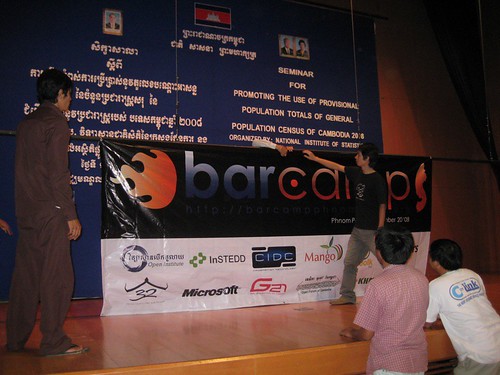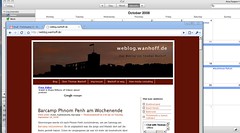Ich habe gerade hier in Vietnam wieder Leute getroffen, die davon gehört haben, dass Kambodscha ein guter Standort sei um zu investieren. Schließlich habe das Land eines der höchsten Wirtschaftswachstümer. Hier einmal eine Story in der Phnom Penh Post wie das in der Realität aussieht, wenn man investieren will. Es geht um ein Hotel, dass der Regierungspartei gehört und an der besten Stelle der Stadt steht – gegenüber dem Königspalast. Zahlreiche große Hoteketten haben vorgesprochen, immer wieder schwieterten Verhandlungen, weil plötzlich Preise mal eben verzehnfacht wurden oder die Gegenseite einfach mal keine Lust hatte.
KEM CHANTHA, manager of the Renakse Hotel, will continue to defy a government request to vacate the historic property by the end of September, she told the Post on Tuesday.
“I am staying here to see what they will do because they are not respecting the law,” she said. “I want the government to recognize my right to stay.”
Kem Chantha has operated the hotel for more than two decades, and her lease is valid until April 2050, she said.
So, die Frau sagt also, sie hat einen gültigen Pachtvertrag. Das scheint die CPP nur nicht zu interessieren.
But a notice posted last week on the hotel’s front gate said the property, owned by the Cambodian People’s Party, had been sold to Alexan Inc and will be developed to provide housing for government officials.
Die beste Hotellocation in einer Stadt, der es an guten Hotels mangelt, wird also für Regierungsmitglieder benutzt.
Nun hatte die Frau übrigens auch schon mit Investoren verhandelt, ohne eigentlich die Rechte zu haben.
Wer in Kambodscha investiert, kann sich nicht sicher sein, ob die Verträge wirlich eingehalten werden, ob das Land nicht am nächsten Tag jemand anderm gehört.
So ähnlich sieht es auch am Boeng Kak Lake aus. Der wird gerade zugeschüttet, viele Familien haben Land, Arbeit und Haus verloren, aber wen schert das schon. Da kommt jetzt ein schönes neues Wohnviertel hin.
Vielleicht.
As creeping waters start to force the first Boeung Kak residents from their lakeside properties, housing rights advocates maintain the planned development of a large-scale commercial and housing project in the area is illegal under the Kingdom’s 2001 Land Law.
Tja, das liebe Recht in Kambodscha. Natürlich gibt es Gesetze, nur schwert sich kaum einer darum.
Phnom Penh deputy governor Pa Socheatvong told the Post in August that “[the residents] must understand that the lake belongs to the state. It will be easy if they understand this, but it is a difficulty if they do not understand it.”
But David Pred, country director of international grassroots human rights organisation Bridges Across Borders, said the Law also imposes restrictions on the use of such land, meaning that the February 2007 lease agreement between the government and little-known developer Shukaku Inc is essentially illegal. “[The law says] you can’t lease state public property for more than 15 years and you cannot destroy or fundamentally change state public property,” Pred said. “By filling in the lake, you are fundamentally changing public property.”





